Advantages of Using Ceramic on the Kitchen Wall
Answer one question: do you know which ceramic is best suited for kitchen walls? If not, we will help you find the answer.
But it's better to know in advance that the choice should be a combination of functionality, practicality and, of course, beauty, because everyone wants a beautiful kitchen, in which one wants to live.
Material Advantages
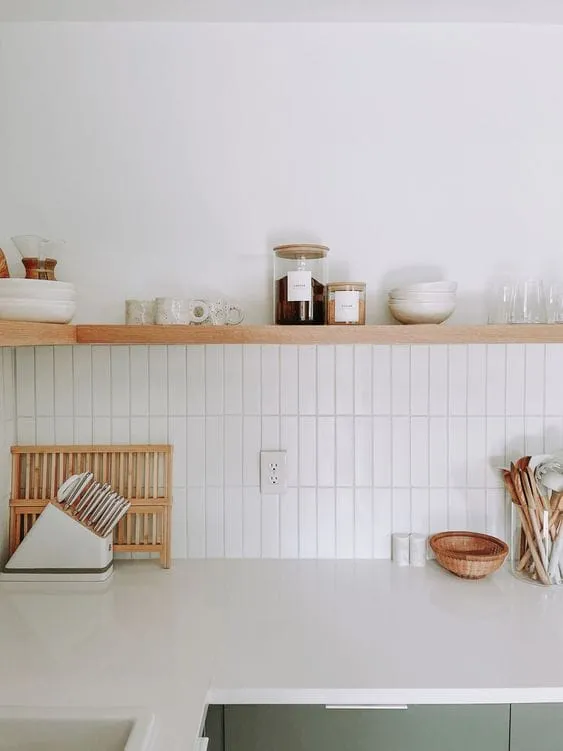 Pinterest
PinterestDurability and Strength
Ceramic is one of the strongest and most durable materials for floors and walls. It surpasses even marble in its characteristics. Ceramic is not scratched, does not absorb moisture, is heat-resistant and withstands high temperatures, as well as capable of absorbing impacts.
That is, ceramic can be used on the floor or wall without worrying about having to replace the coating in the near future. This, of course, positively affects your wallet — it is profitable in the long run.
Another advantage in this respect is eco-friendliness. The longer we use a good material, the fewer resources need to be extracted from nature.
Easy Maintenance
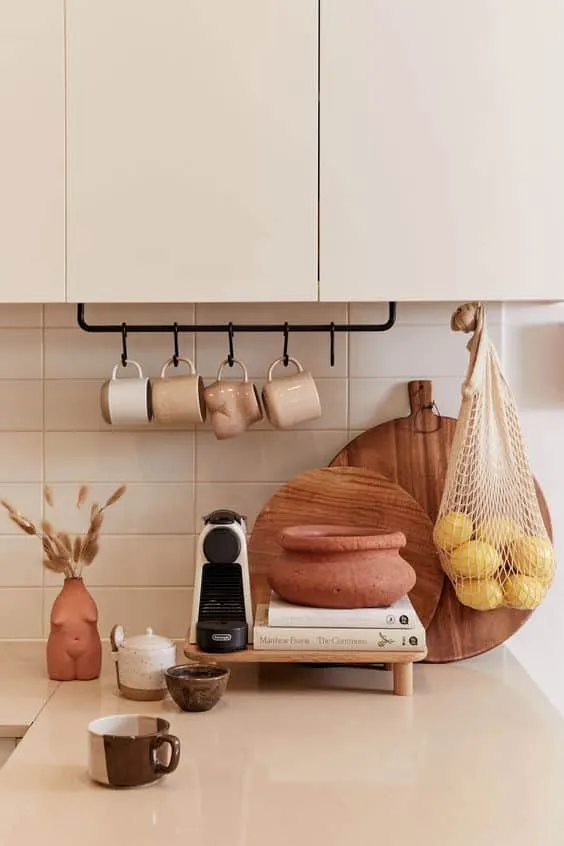 Pinterest
PinterestThanks to its water resistance, ceramic is an excellent helper in cleaning. It does not absorb water, fats and other liquids.
In daily life, a soft cloth dampened with neutral cleaning agent is sufficient. For deeper cleaning, baking soda can be used.
Water Resistance
We have already mentioned this, but let's repeat: water resistance of ceramic tiles is not only an advantage in terms of maintenance.
A water-resistant material is more resistant to mechanical impact and better withstands load from passage, so it scratches less and even doesn't break.
Wide Range of Applications
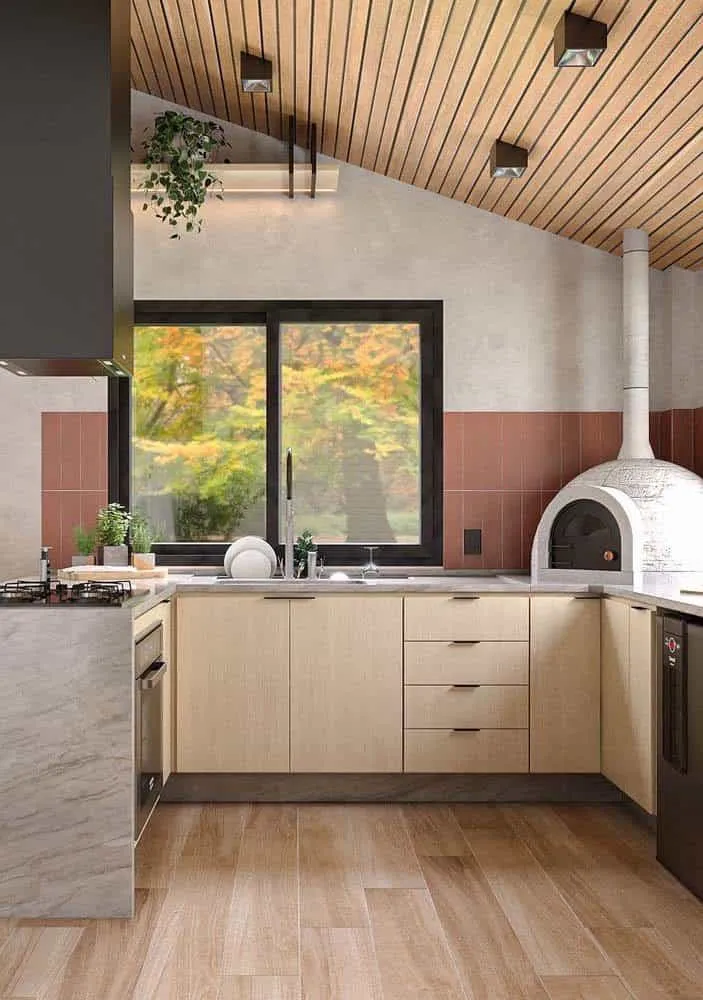 Pinterest
PinterestPreviously, kitchens were completely covered with tiles — from floor to wall. Today this style is going into the past, and we usually use coating only on half of the wall, generally up to sink level — that is, covering only the wet zone.
In addition, ceramic can be used for floors and in other rooms — for example, to cover countertops, bar tables and islands.
Quick Installation
Another big advantage of ceramic is that any painting crew can handle the installation. This speeds up the process and reduces labor costs, as no specialized preparation is required.
Despite all the advantages, is ceramic really a miracle? Yes, but there's one drawback: grout.
Grout may be the main downside of this type of coating, as ceramic has more visible marks between grout lines compared to solid tiles with rectangular elements that significantly reduce the need for grouting.
The more joints, the more work is required to clean and maintain cleanliness. However, this problem can be solved by following regular maintenance — to prevent dirt from penetrating.
On average, apply hydrogen peroxide to the grout every two weeks. Leave for several minutes, then scrub with a brush and rinse.
With proper care, ceramic grout will always be clean.
Need a renovation specialist?
Find verified professionals for any repair or construction job. Post your request and get offers from local experts.
You may also like
More articles:
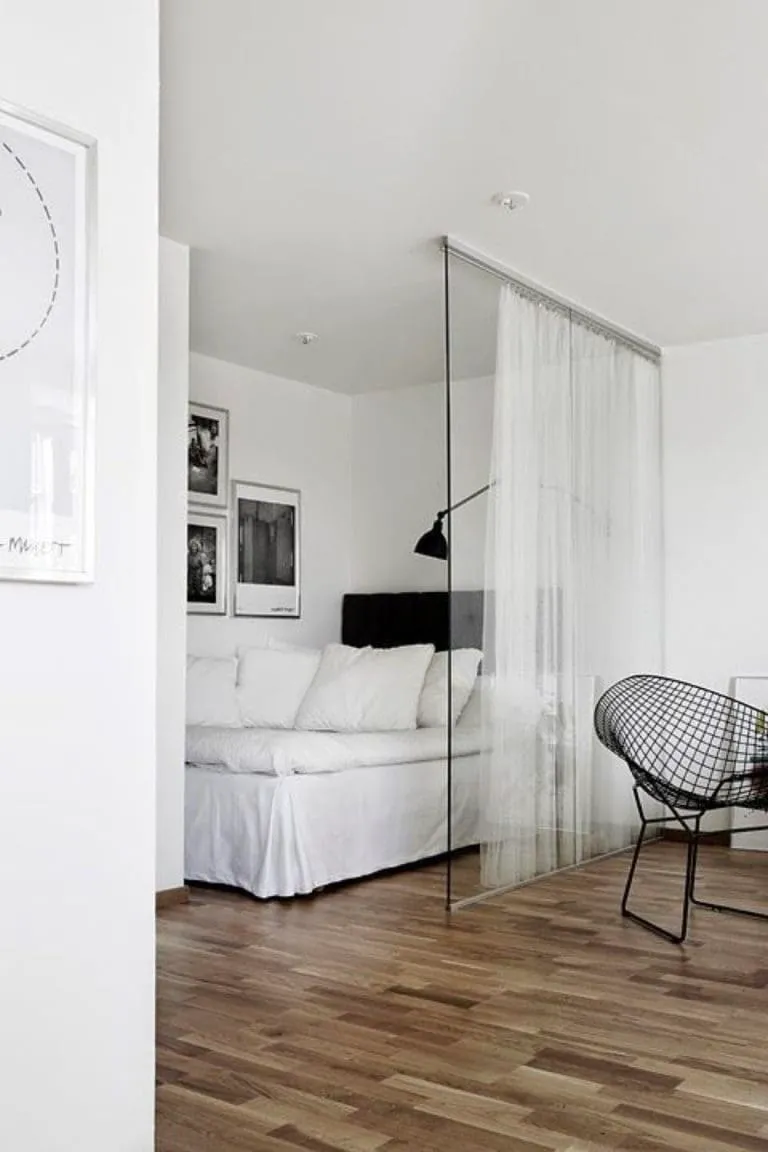 Modern Glass Ceiling in Bedroom as a Decorating Idea
Modern Glass Ceiling in Bedroom as a Decorating Idea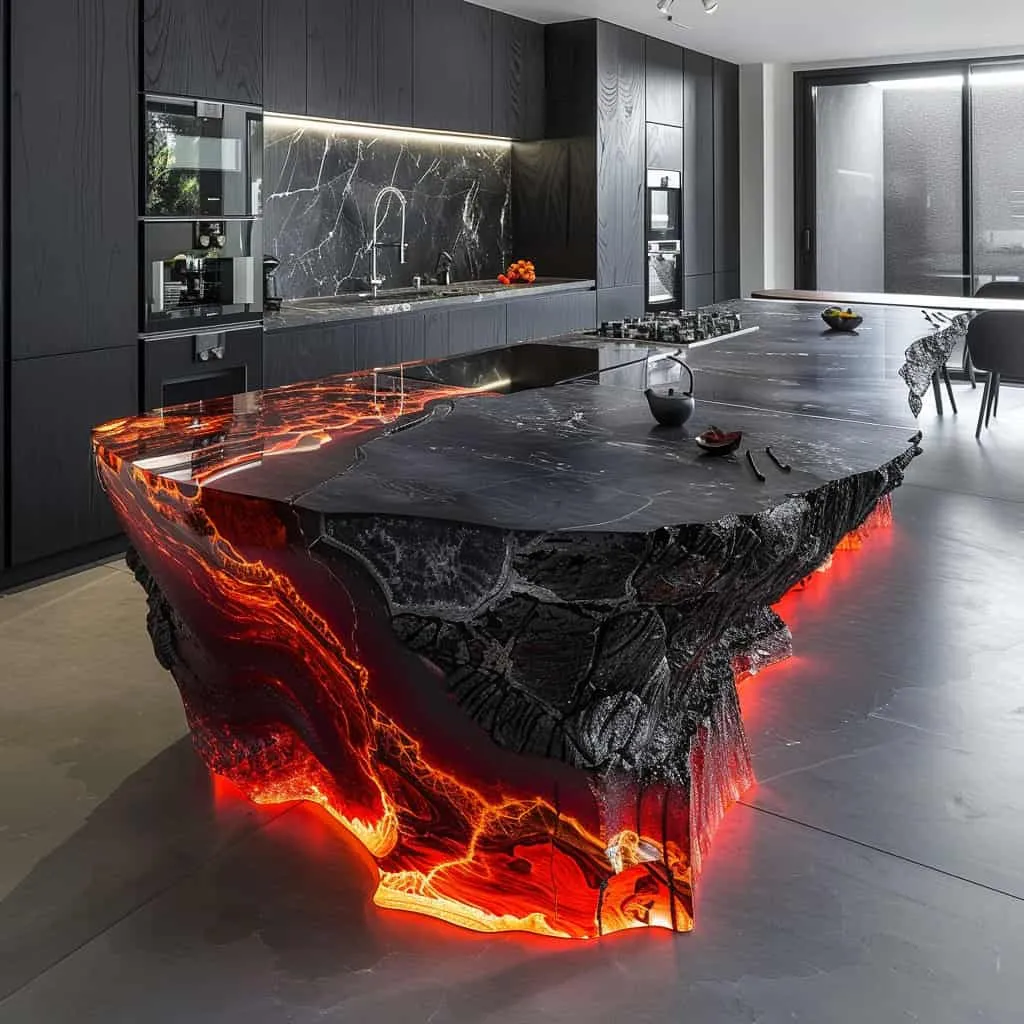 Fiery Masterpiece: Kitchen Design with Lava Islands
Fiery Masterpiece: Kitchen Design with Lava Islands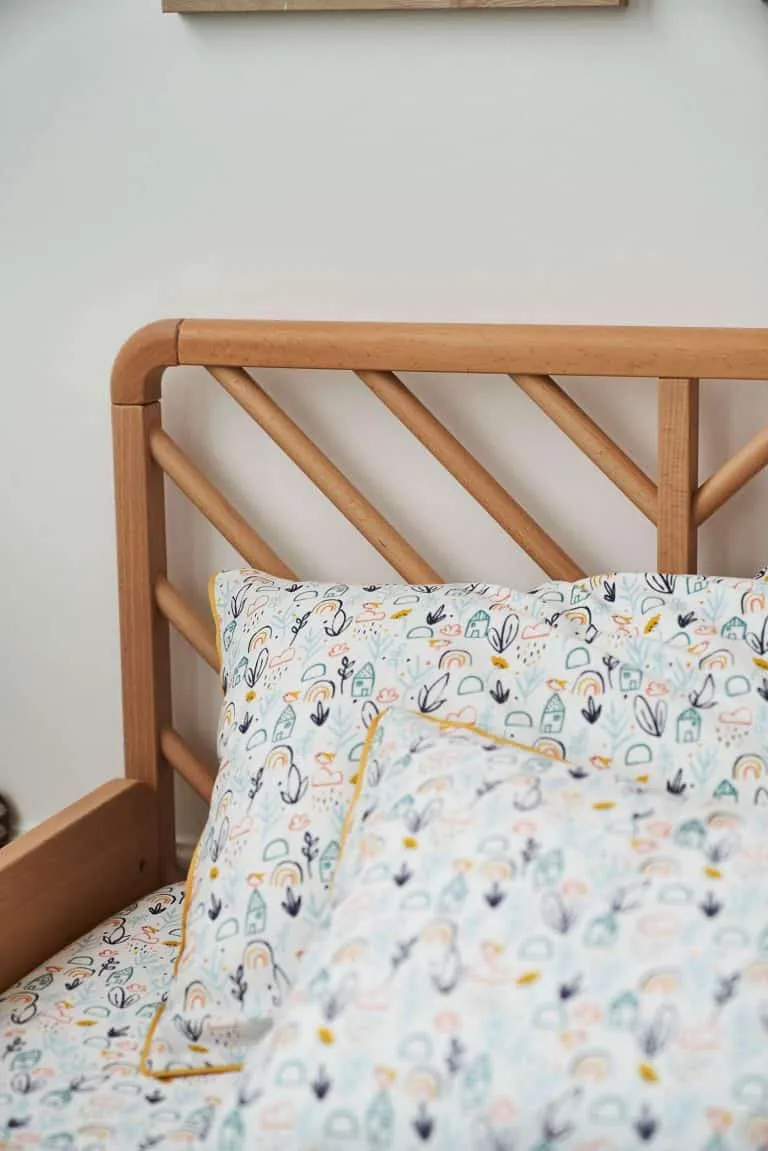 Montessori Room for Toddlers
Montessori Room for Toddlers MOUNTAIN HOUSE PREPARED FOR CHRISTMAS EVE
MOUNTAIN HOUSE PREPARED FOR CHRISTMAS EVE Paris Apartment Transformed with Unique Color Combinations
Paris Apartment Transformed with Unique Color Combinations Paris Apartment with a Certain Charm
Paris Apartment with a Certain Charm A Swedish House Filled with the Charm of Mid-Century Modern
A Swedish House Filled with the Charm of Mid-Century Modern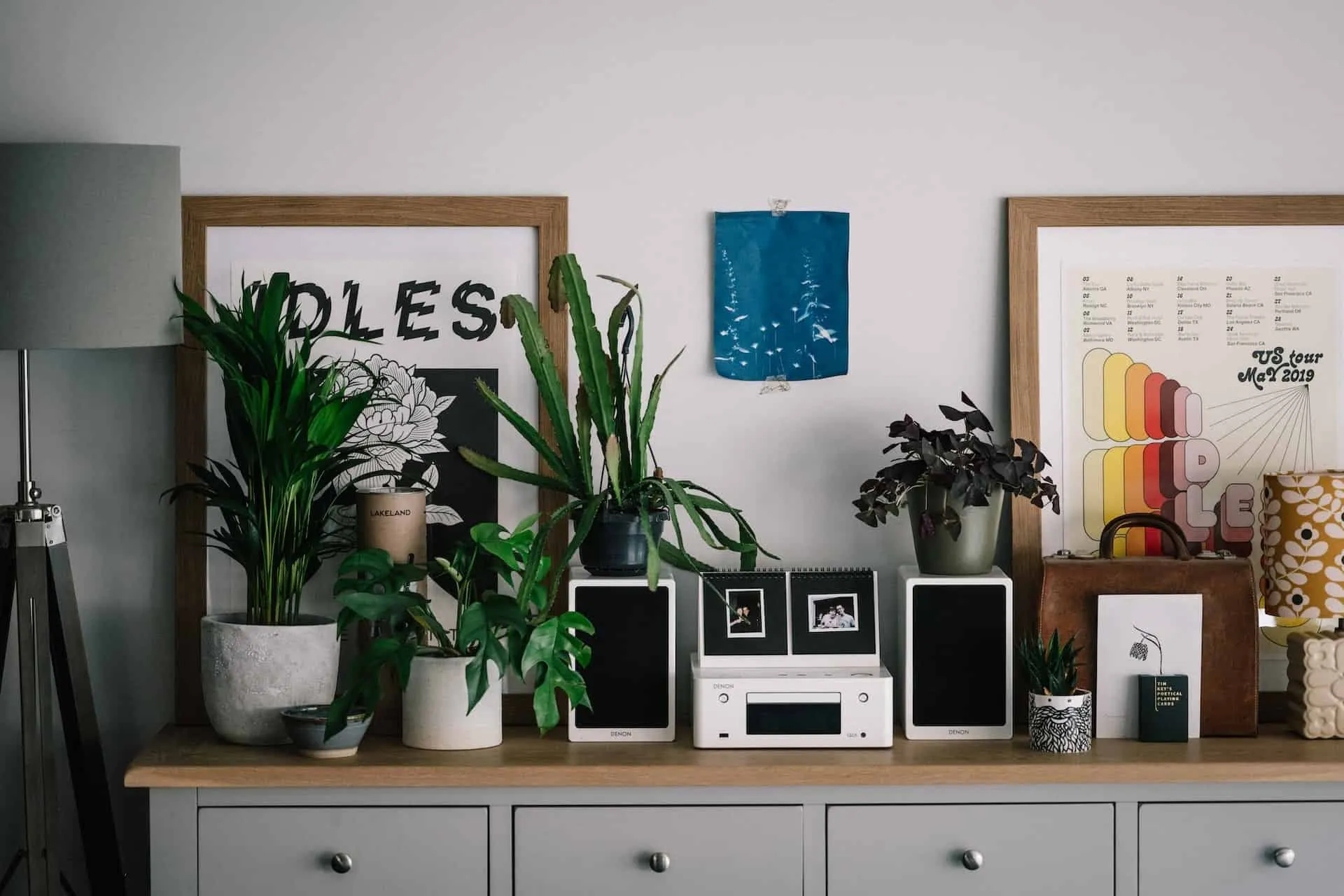 Plant for Every Room in the House — Guide to Making Your Home Greener
Plant for Every Room in the House — Guide to Making Your Home Greener